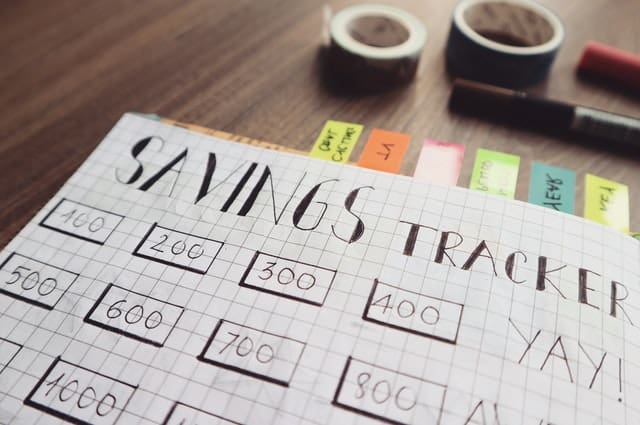One of the biggest challenges, as a graduate student, is how to manage your finances. This is especially true if you are in a doctoral program and are just starting on your own.
You want to spend your money on many things, but at the same time, you do not want to go broke. So this article will offer some suggestions for managing your finances during the course of graduate school.
One thing for sure; you can avoid getting broke and get discounted school essentials on Cudy Shop!
How Can Students Manage Their Money During College?
1. Cut your expenses:

Let's say you want that expensive new car, but it might be wiser to keep your old car for a little longer. You might want to wait on buying that expensive new laptop so that you can get a good computer at a better price.
You might want to move into a less expensive apartment and/or move back in with your parents. You can always find ways to cut expenses without sacrificing the quality of life too much.
Remember that if you do not have the money, you will not pay for additional courses or programs to enhance your educational experience or increase your employment opportunities after graduation.
2. Stop buying that fancy coffee every morning:
You might be spending way too much money on expensive coffee every day! Do I really need it? In truth, coffee is not even an essential item! So cutting back on this small luxury could save you hundreds of dollars each month – and coffee is usually cheaper than $5 a cup.
3. Get a part-time job:
Even if it is just one or two evenings per week, you can make some extra money for yourself. Besides, working part-time will give you experience in the workforce that you can put on your resume. Note that some employers may be reluctant to hire graduate students because of the possibility that they might leave for another job after graduation.
That is why you need to get as much work experience as possible while in school, so employers will see that most of your work experience was obtained. At the same time, you were a full-time employee (i.e., during school).
4. Save your money:
Saving money is one of the most basic ways to avoid going broke, especially if you don't have a stable income yet. Unfortunately, many students do not save any of their money – or at least not much of it – during their college and graduate school years.
You might want to open up a savings account, even if you have no immediate plans for the money. You have to make sure you will not be tempted to use it for something else because if you do, you will lose the money!
5. Pay off your credit card debt:

If you have a credit card debt, now is the time to start paying. If you are paying interest on your credit cards, it costs you a lot of money a year.
So pay off as much as possible on your credit cards, and do not use any new credit cards at all – this way, you will be able to pay them off even faster, especially if you don't have any scholarships.
The interest rate is so high these days that I would rather put my money in banks that earn interest than pay high interest on a credit card.
You can also transfer the balance to a low-interest card or put it into an investment account that is earning interest at least up to 6% or higher – this could save you hundreds of dollars each month in addition to helping pay off the credit card quicker.
6. Avoid getting credit cards:
If you don't own any scholarships to give you income, and are not responsible for credit, avoid getting a credit card! It will only make you broke and end up costing you more money in the end. In fact, I would recommend that you do not use any more than one credit card for paying for things since it is too easy to over-spend when using multiple credit cards.
One might be okay if you are extremely careful about how much money you are spending on your credit cards. The right thing to do is to make sure that your statements come to your email address so you can keep track of how much money is being spent each month.
7. Take care of yourself:
It is essential to take care of yourself physically and mentally in universities and graduate school years – this way, you will be much more productive in your studies and have a better chance of succeeding in life after graduation.
You might want to follow a healthy diet, exercise regularly, get enough sleep and go to the dentist for regular check-ups. Remember that your body is just as important as your mind, and you should treat both with respect.
8. Keep track of your finances:
Keep track of your finances and use a budget to plan your expenses every month. You can use an excel spreadsheet or some financial management software.
This way, you will know exactly how much money comes in from different sources and how much is going out each month. This should help prevent any unnecessary overspending on things that are not as important as others.
9. Learn how to manage your money:
Once you start to handle your finances, you should learn how to manage your money. Go to the library or bookstore and read a few books on how to deal with finances.
It would be best to talk with a financial planner and/or investment professional about the best ways for your financial decisions. You want to make sure that your money is working as hard as possible for you so that it will last for many years into the future.
10. Invest in yourself:
Investing in yourself by investing in books, CDs, etc., can be very rewarding because it will help make you a better employee and general person. These types of investments will pay off many times over down the road when you need them most.
It is important not only to invest in yourself but also to learn how to invest properly – this way; you can make sure that your money is working as effectively as possible for you!
What does Managing Your Finances Mean?
Managing your personal finances is a lot like managing your time. It is important to manage both of these things to be more productive in school and increase the likelihood of success after graduation.
It is a great idea to keep track of how you are doing daily to make adjustments. You might not be able to get everything done every day. Still, at least you can make adjustments to improve your time management skills and financial skills over time.
For example, maybe you are not getting enough sleep or eating as well as you should – this could help explain why you are having problems with your personal finances or your time management skills. It could also mean that other problems are going on in your life that need to be addressed right away!
Many students nowadays have to face many financial problems to finish their studies or even start them. Students are often not well prepared financially with a huge amount of expenses and a meagre income.
This is why students are forced to take out student loans and apply for scholarships, grants, and other government financial help. However, getting scholarships, grants and managing your finance might not be an easy task. Even so, it is still possible!
Want to know more? Read our other articles to find out more about finance!




